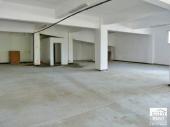|
| 6 weird Bulgarian holiday season traditions |
|
|
 Like elsewhere in Europe, the holiday season starts in early December, with the preparations for Christmas and New Year’s Eve, two of the biggest holidays of the year. Unlike other places, though, Bulgaria tends to do the holiday season in quite a weird way.
Like elsewhere in Europe, the holiday season starts in early December, with the preparations for Christmas and New Year’s Eve, two of the biggest holidays of the year. Unlike other places, though, Bulgaria tends to do the holiday season in quite a weird way.
There’s no Advent for most of us and Saint Nicholas won’t bring you gifts (unless you count seafood), but we’ve gone all out with our own set of quirky ways to mark the holiday season at the end of the year. From the students’ crazy party holiday on 8 December to the customary Bulgarian beating with sticks for good luck on New Year’s, kashkaval tourist presents X unusual Bulgarian holiday season traditions!
1. A good beating for a good year: Survakane
A tradition rooted in antiquity, survakane is basically children (lightly) beating adults on the back with elaborately decorated sticks! Along with the beating, the children recite cryptic incantations supposed to bring good luck to the adult, and at the end, the kids receive some money for their “service”. The custom takes place on New Year’s Day (1 January) each year, a holiday the Bulgarians once called Survaki (Ñóðâàêè).
Though the ritual varies from region to region, survakane is popular throughout Bulgaria. The stick, named survachka (ñóðâà÷êà), is always made of a cornel branch adorned with yarn, wool, dried fruit, beads and other small items.
2. Saint Nicholas as a fishermen’s holiday: Nikulden
You may be aware of Saint Nick as the precursor to the modern Santa Claus, and in Western and Central Europe he is still hailed as a bringer of gifts. In Bulgaria, just like in neighbouring Greece, Saint Nicholas is the patron saint of sailors and fishermen. The maritime association is carried over to the traditional meal of the evening: fish or any seafood is an absolute must and the most popular dish is ribnik (ðèáíèê), carp wrapped in dough and filled with walnuts, onions and raisins.
Known locally as Nikulden (Íèêóëäåí), in Bulgaria Saint Nicholas’ Day falls on 6 December. Because many Bulgarians are named Nikolay or Nikola, this is a very popular name day and a great occasion for a gathering with family and friends… as long as there’s fish on the table!
3. Fixed number of veggie dishes on Christmas Eve, pork on Christmas
Bulgarians tend to take their food very seriously around Christmas. And though the holiday season may pose a general danger of overeating, you’re also required to obey a strict set of rules as to what to eat on Christmas Eve (24 December) and then on Christmas Day (25 December) itself.
Christmas marks the end of the Orthodox fasting period. So on Christmas Eve (Áúäíè âå÷åð, Badni vecher), only lean dishes may be served. And they must be an odd number – typically 7, 9 or 11. The usual favourites are oshav (dried fruit), filled peppers, sarma (filled cabbage or grape leaves) and turshia (vegetables pickled in vinegar and brine).
And then on Christmas Day, fasting is over so you’re allowed to go gung-ho with massive amounts of meat! Traditionally, pork is the centrepiece of Bulgarian Christmas, and in the rural regions a pig is typically slaughtered and prepared that very day.
4. Fortunes and a coin inside your food: pita and banitsa
The customary dishes for the holiday season don’t end with that, though. For Christmas, another staple has to be the Christmas flatbread (pita, ïèòà), a delicious homemade bread often decorated with an ornamental cross in the middle and shared by the whole family. Somewhere inside the pita, there’s a coin – and whoever finds it in his piece is guaranteed a successful year!
For New Year’s, the equivalent is the New Year’s banitsa with fortunes. The big Bulgarian banitsa with little papers in each piece is supposed to tell each person’s future depending on what fortune paper they draw. These range from “health” and “money” to “a baby”, so be careful what you wish for!
5. Students’ crazy party holiday: 8th December
Though not strictly related to Christmas and New Year’s, the Students’ Holiday, 8th December, is an inseparable part of a Bulgarian festive December. On that day, students celebrate the day of Saint Clement of Ohrid, the patron saint of Sofia University and of Bulgarian higher education.
Rather than going to lectures, on this day students organize huge parties with their fellows. Mountain resorts like Bansko have become (in)famous for university celebrations getting out of hand as thousands and thousands of students flock to the hotels, restaurants and night clubs.
6. All-out firework war: New Year’s Eve
Sure, fireworks may be a common way to celebrate the coming of a new year on the evening of 31 December. But for Bulgarians, New Year’s Eve is like preparing for all-out war: huge fireworks, crackers and even (gas) guns are shot in the air all at the same time, creating a memorable panorama if you’re looking from a high-rise building.
Unlike the Russians, who watch Soviet romantic comedy The Irony of Fate, or the Germans, whose New Year’s Eve cannot go without British sketch Dinner for One, Bulgarians don’t have a classic New Year’s TV programme. Rather, we’re really serious about seeing the president’s address at midnight although at this point we’re practically wasted. And then, it’s time for champagne and a Dunavsko horo (Äóíàâñêî õîðî) circle dance into the new year! |
|
|
Source:
www.kashkaval-tourist.com
|
| Monday, Dec 17, 2018 |
|
|
|
|
| » RENTALS |

|
|
|
| Commercial |
€ 770 |
|
| Location: |
Veliko Tarnovo |
|
|

|